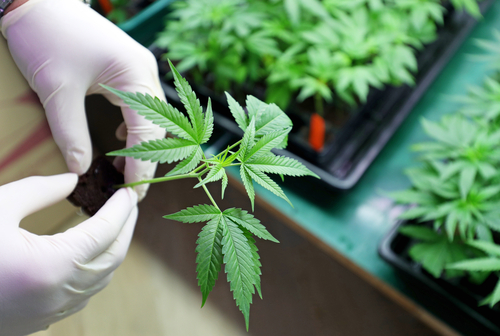Emerald Health’s Huntington’s Therapy Candidate EHP-102 Granted FDA Orphan Drug Status
Written by |

The U.S. Food and Drug Administration recently granted orphan drug status to Emerald Health’s EHP-102, an investigative therapy for Huntington’s disease.
EHP-102 is a patented cannabigerol (CBG) derivative in development for the treatment of Huntington’s and Parkinson’s disease. CBG is a natural cannabinoid with potent effects that has been shown to have anti-inflammatory properties and evidence of neuroprotective abilities.
Emerald’s EHP-102 has been modified to provide even more potent benefits compared to natural CBG by also affecting peroxisome proliferator-activated receptors gamma, PPARy, a key molecular target for the treatment of Huntington’s, as well as targeting other pathways involved in neural survival.
In a previous study titled “VCE-003.2, a novel cannabigerol derivative, enhances neuronal progenitor cell survival and alleviates symptomatology in murine models of Huntington’s disease,” published in Scientific Reports, Emerald Health scientists showed that EHP-102 prevented neuronal loss in Huntington’s-like disease mouse models, improving motor deficits and antioxidant defenses in the brain.
These data led the team to conclude the compound may have high potential for the treatment of Huntington’s disease and other neurodegenerative diseases with brain inflammation traits.
“Having secured orphan designation for our lead product, EHP-101, a cannabidiol (CBD) derivative, for systemic scleroderma in the U.S. and Europe, we aim to repeat that accomplishment for EHP-102 for Huntington’s disease. The FDA’s granting of orphan designation for EHP-102 is a key step toward that goal,” Jim DeMesa, MD, the CEO of Emerald Health, said in a press release.
“These are debilitating diseases that need new and more innovative treatments, and we look forward to getting our drug candidates into human studies,” he added.
The FDA grants orphan drug designation to drugs and biologics aimed at treating rare diseases, defined as those affecting fewer than 200,000 people in the United States.
The orphan drug designation enables Emerald Health to benefit from seven years of marketing exclusivity against competition if the drug is approved, tax credits for qualifying clinical trials, and federal grants.
In addition, any marketing application for a prescription medicinal product that has received orphan status in the past is not subject to a prescription drug user fee. None of these benefits lowers the standards of the regulatory requirements.
Emerald plans to initiate a Phase 1 study of EHP-102 in 2019.





